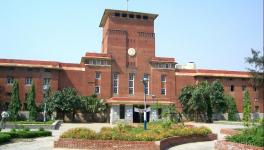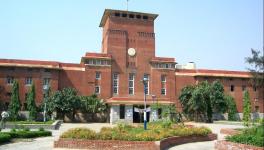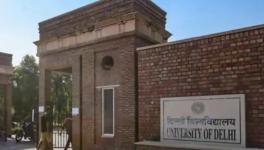Delhi University: Won’t Pay ‘Unjust Fee’, say St. Stephens Students on Fee Hike
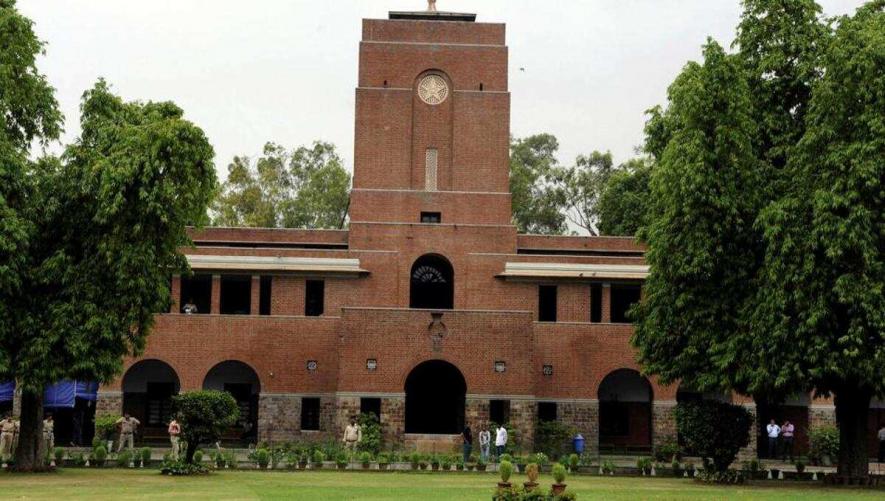
Image Courtesy: Hindustan Times
Students of Delhi University’s St. Stephens College are in uproar over the increase in utility bills in form of fees for electricity, water and the internet. The students allege that the college has asked them to furnish utility charges for the period during the lockdown, when they were away from campus and the college was shut owing restrictions to curb COVID-19.
According to a notice sent to the students, the students are required to pay Rs 9,600 as Establishment Fee, Rs 2,400 for Electricity and Water Charges, Rs 2,000 for internet and Rs 900 for using the library. Students told NewsClick that these “arbitrary” charges without any transparency about their use has resulted in the college becoming inaccessible to students from marginalised communities.
Anant Singh (name changed) told NewsClick that the fee hike comes at a time when the institution, being publicly funded, receives 95% of its funding from the University Grants Commission. “The college is demanding an unjust fee, particularly when the families are witnessing unprecedented financial constraints due to the pandemic. We did not receive any institutional support in the form of software subscriptions and students and teachers incurred huge costs to attend online classes,” he said. He mentioned that one of his friends had begun helping his father in his work and another was contemplating dropping out since he was paying Rs 12,000 for a PG facility.
“I fail to understand why we are being charged thrice in comparison with other colleges which provide far better services to their students. On an average, a hostel resident is paying Rs 3.8 lakh for his undergraduate programme. Does this fee suggest that the college is a public funded institution?” he asked.
Another student who wished to remain anonymous said that the college had not been transparent about where it spent the establishment fee collected from the students and that it has been vindictive towards the students who had raised the issue earlier. “The college is charging students for the internet when it did not spend a single penny to provide any support. The charge could have been justified if, like the Shri Ram College of Commerce, it bought software for its students so they could attend the online classes smoothly,” the student said.
The student also mentioned how public funded universities were supposed to be affordable for those who are disadvantaged for any reason. “How will they avail of the opportunity if you keep the fees consistently high. We have been told that the college is a prestigious one but there are broken toilets and libraries which have not been repaired in over a year,” the student said. “We often hear the argument that the college is a minority institution and needs special funds but Jesus and Mary College, which is also part of Delhi University and remains a minority institution, charges Rs 14,000 per year while we are charged Rs 45,000 to Rs 60,000 per year, excluding mess charges. If we add that to the total, it is easily more than Rs one lakh for a hostel resident,” the student added.
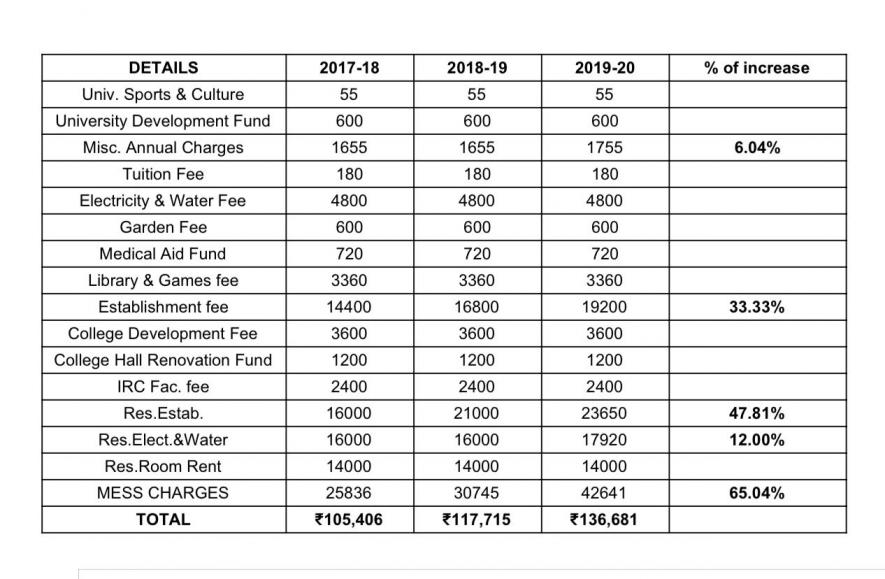
Teachers alleged that the college violated the University’s rules for recruiting staffers. A teacher, who requested anonymity, said that the college have hired non-sanctioned staff and much of the money goes towards their salaries. “It is true that the fee is higher in comparison to other colleges. One of the legitimate reasons is that the college admits only 1,200 students whereas other colleges admit 4,000 students. So, our per capita expenditure on students is high but the college has been recruiting the same set of people through its contacts. If they were recruited through legal route, the UGC would have paid salaries. It is up to the college to come clean about it,” the teacher alleged, adding that the fee hike has affected the diversity of the class rooms.
“The college is funded by taxes paid by the common man. The Government gave the land to the college on a lease which is almost free. This is not a shop. The worst part is that scholarships are offered in the middle of the year to discourage students from poorer families,” he said.
Nandita Narain, former president of the Delhi University Teachers’ Association who also teaches at the college, told NewsClick that there were alternate ways through which the fee could have been brought down. “The college had a surplus of Rs four crore from the fee collected from the students. Additionally, the college runs a number of foreign language courses and earns handsomely. It could have used the amount to give relief to the distressed students. It even to chose lay off several daily wage staffers from the college during the pandemic. The strange part is there are no provisions and laws to raise the fee. Thus, there is no transparency,” she added.
Get the latest reports & analysis with people's perspective on Protests, movements & deep analytical videos, discussions of the current affairs in your Telegram app. Subscribe to NewsClick's Telegram channel & get Real-Time updates on stories, as they get published on our website.











